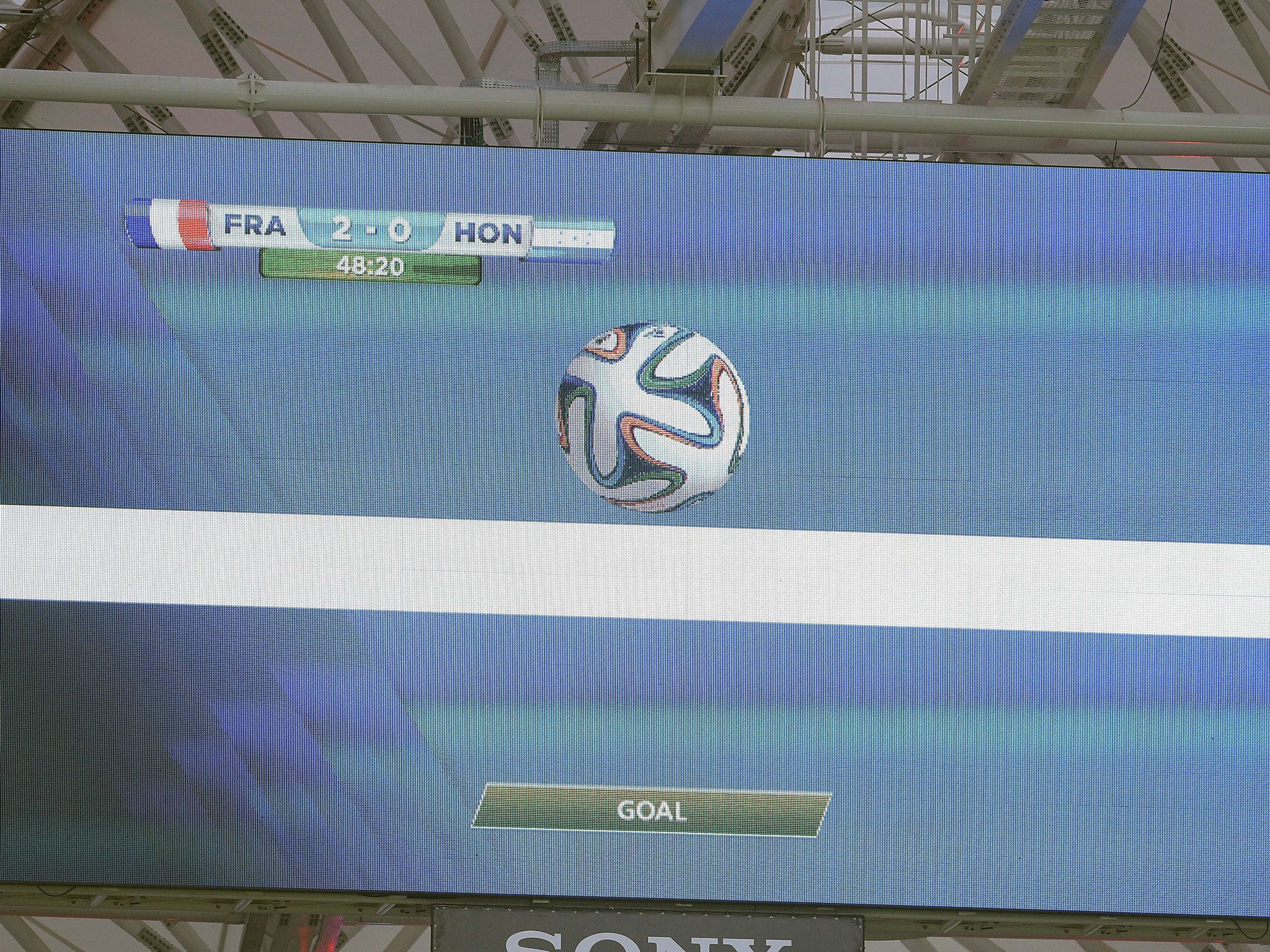World Cup 2014: Michel Platini and Sepp Blatter at odds again over alleged claims regarding goal-line technology

Uefa is still considering using goal-line technology at Euro 2016 in France but its introduction is not the “done deal” Fifa president Sepp Blatter has claimed it was, according to a Uefa statement yesterday.
Blatter, in a filmed interview for the official Fifa website, said that Michel Platini, the Uefa president, had told him goal-line technology (GLT) will be introduced for the European Championship.
However, Platini has never publicly confirmed that it will be used and Uefa responded to a request for clarification by saying: “The president has said on the record that Uefa will look at introducing GLT at Euro 2016.
“However, it is not a case of snapping his fingers and making it happen. It will be discussed at the Referees Committee and then still has to be approved by the executive committee.”
The last time Platini spoke publicly about goal-line technology was in an end-of-season interview when he told Uefa’s website (www.uefa.com):
“So far we have decided not to use goal-line technology in our club competitions, because it would cost many millions of euros, and we would rather use that money in grassroots projects.
“For Euro 2016 there is a chance we could use the technology, but always together with our additional assistant referees.”
He confirmed then that the matter will be discussed by the Referees Committee with the Uefa Executive Committee taking the final decision.
“We have been very happy with the deployment of additional assistant referees (AARs),” Platini added, “and believe it is the best way to minimise mistakes made in the key areas of the game.”
Platini, the former France midfielder and national team coach, has been a staunch opponent of technology for most of his seven years as Uefa chief but over the last few months his position has shifted.
Blatter, though, said Platini was now fully converted, adding in his interview: “I have spoken to Uefa president Michel Platini, who said he will introduce goal-line technology at the next European Championship in France in 2016.”
There may well have been a political dimension to Blatter’s statement, which pre-empts any decision Uefa is set to take.
Blatter, who may well face a challenge from Platini to his position as Fifa president next year, has, in a political sense, scored a point over Platini (left).
By openly stating that Platini has told him it “will be introduced” the Frenchman has been forced into a corner.
If he does not introduce technology now, he looks stubborn and reactionary, which would seriously harm any chance he may have of a probable reform platform for his presidency.
Until recently Platini made no secret of his opposition to the technology, which determines if the ball has crossed the line, and instead has favoured the system of having AARs behind the goal-line.
Goal-line technology is being used at the World Cup in Brazil for the first time and apart from one minor computer glitch has proved efficient.
Blatter, like Platini, was once staunchly opposed to using technology but changed his mind about it in 2010 after England’s Frank Lampard had a goal disallowed against Germany in the World Cup in South Africa when the ball was clearly over the line.
“It helps the referee and the public and now there is no more discussion about whether a goal was scored or not scored, and ultimately scoring goals is the objective of football,” Blatter said in his interview.
“I am sure that professional leagues will follow,” he added.
Join our commenting forum
Join thought-provoking conversations, follow other Independent readers and see their replies
Comments
Bookmark popover
Removed from bookmarks